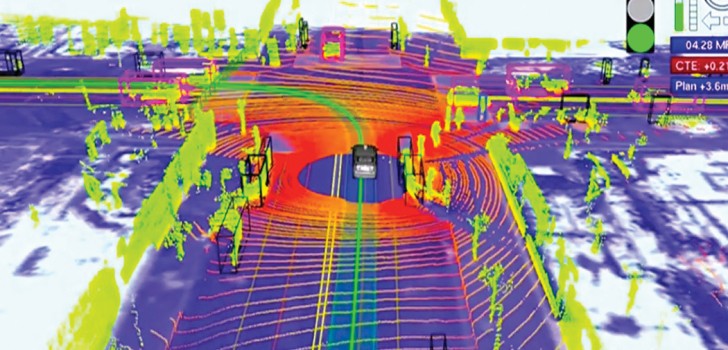New research has found that the laser ranging systems (lidar) used by a majority of self driving vehicles, as well as used for blind spot detection, to sense objects and obstacles can be hacked by a system costing just $60. The vehicle hacking is not only limited to manual vehicles but even self driving cars who rely heavily on the technology.
The latest findings show, simply, that no American vehicle is safe from hackers.
A security researcher working with Security Innovation, Jonathan Petit, established the new system of hacking self driving vehicles. Petit said he had developed a system that took echoes of fake cars or from a pedestrian or a stationary wall, and used them to trick a driverless vehicle to think that something was directly ahead of it.
The self driving vehicle would be forced to slow down or even stop altogether. Petit said they could also ambush the car with multiple signals, totally confusing it to the extent it could not move at all.
Petit described the setup he used in a paper he is due to present at the Black Hat Europe security conference this November. He said, “It’s kind of a laser pointer, really. And you don’t need the pulse generator when you do the attack. You can easily do it with a Raspberry Pi or an Arduino. It’s really off the shelf.”
Petit said all he had to do was record the pulses from a IBEO lux lidar system, encrypt and encode them, then play them at a later point. Through this system, Petit could make multiple spoof copies of vehicles, walls and even pedestrians from 65 feet to a fifth of a mile away from the exposed lidar unit.
The attacks were as effective when carried out in front of the vehicle as they were at its side and even behind.
The researcher said that the sensor systems of self driving vehicles were actually their most vulnerable points. Just recently, other security researchers had hacked vehicle GPS devices and wireless tire sensors.
Petit said, “This is a key point, where the input starts. If a self-driving car has poor inputs, it will make poor driving decisions.”
Petit has said that the aim of his research is to enhance security for passengers on the road, especially when all control is given to machines. Petit is calling for the adaptation of strong misbehavior systems to cross check real and fake signals in self driving vehicles.
The future of our roads will be driverless. However, that future will be compromised if humans have to cede control to machines that can be hacked randomly. Self driving car manufacturers have got to place passenger security before anything else.
